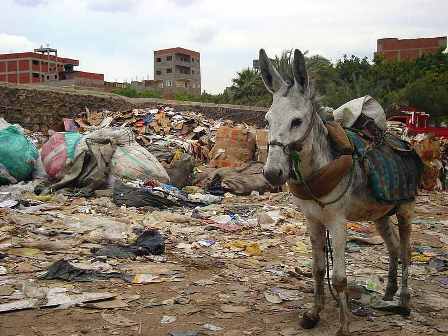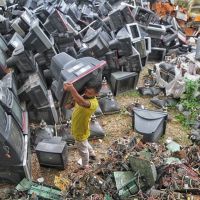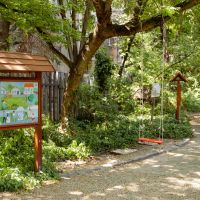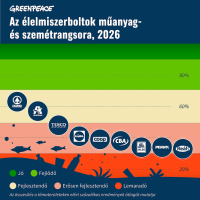Cairo puts its faith in ragpickers to manage the city's waste problem

Egyptian Christian minority with tradition of turning a profit from recycling given official role in city's waste processing
The Zabaleen are a Christian community who migrated from Upper Egypt to the outskirts of Cairo in the 1940s. They live under very poor conditions, and earn money by collecting and recycling waste from the streets and houses of Cairo. They have facilities for recycling the different kinds of materials (e.g. plastic, paper or metals), and they keep pigs in their backyards which are fed with organic waste. The excrement of the animals is sent to a compost plant in the suburb of Cairo, which is then processed and sold to farmers. Although these people collect two-third of the waste of Cairo, they have never been officially recognised by the Egyptian government in spite of the fact that Zabaleen recycle almost 100% of the collected waste compared to the Western garbage collecting companies, who can only recycle 20-25% of the waste that they collect. Although there have been attempts to outsource the waste management tasks of the city of Cairo to multinational corporations, they all failed for multiple reasons. On the one hand people could not get accustomed to the new waste management system after the comfortable door-to-door „service” of the Zabaleen, and the fee set for waste management services proved to be too high as well. Although Zabaleen have been hit hard by governmental decision several times (e.g. the unnecessary mass cull of pigs in 2009 due to the prevention of swine flu or) the government can not ignore their importance any more, and now the Egyptian government is aiming to give official status to the Zabaleen's role in Cairo's waste processing. They not only collect and recycle waste in an environmentally friendly way with their donkey carts with an extremely high efficiency, but also provide work for many poor people, and implement an eco-city model which is unique in the whole world, and which should be introduced in other cities as well.
For more information please read the whole article under the website of The Guardian.
Source: The Guardian, Wikipedia

A Donkey at Mokattam Hill in Cairo (photo made by Matthias Feilhauer)






